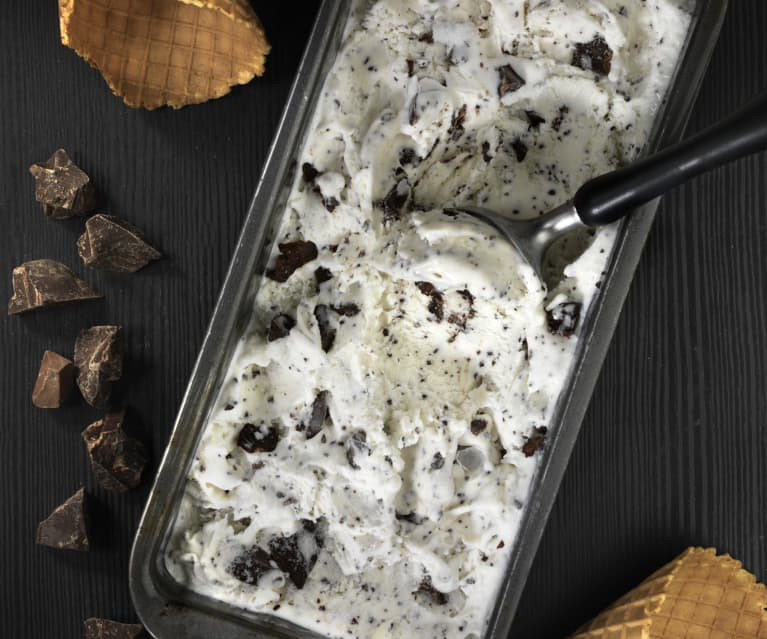Stracciatella ice cream dish
Find out about the delicious ice cream below
Stracciatella is a variety of gelato, consisting of fine strands of drizzled chocolate stirred through it. It was originally created in Bergamo, northern Italy, at the Ristorante La Marianna in 1961. Stracciatella was inspired by stracciatella soup, made from broth into which beaten egg is drizzled, popular around Rome. It is one of the most renowned Italian gelato flavors.
Stracciatella gelato is such a simple recipe that it demands the best of the best; seek out high-quality chocolate and milk for great results. Make sure to spend time reading through the stracciatella ice cream recipe to learn how to make it yourself at home!
Starting with ingredients
- 265g plain or very lightly toasted sugar
- 35g cornstarch
- 2.5g Diamond Crystal kosher salt, or more to taste; for table salt, use about half as much by volume or the same weight
- 565g best quality whole milk, preferably grass-fed, divided
- 225g best quality heavy cream, preferably grass-fed
- 55g best quality chocolate, between 60-75% cocoa solids, preferably single origin, see note
- 15g refined coconut oil
Directions
Whisk sugar, cornstarch, and salt together in a 3-quart saucier. When no lumps of cornstarch remain, add exactly 14 ounces of the milk (about 1 2/3 cups; 396g) and whisk to combine. Cook over medium heat, whisking constantly but not vigorously, until it begins to simmer. This will take about 6 minutes, if the process seems to be moving slowly, simply turn up the heat. When the mixture comes to a boil, set a timer and continue cooking and whisking for exactly 1 minute. This ensures the cornstarch is fully hydrated.
Immediately transfer mixture to a large bowl, then whisk in the remaining milk and cream. Bearing in mind that the gelato will taste substantially less sweet once frozen, season with an additional pinch of salt, if desired. Cover and refrigerate the gelato base until cold, thick, and no warmer than 40 degrees F (4 degrees C), about 3 hours (this process can be sped along with an ice bath if time is of the essence; in that case, a stainless steel bowl will help cool the base even faster).
In a microwave-safe bowl, melt the chocolate with a few 15-second bursts at normal power, pausing to stir well between each addition. Add the coconut oil, and continue stirring until fully melted. For fine chips that partially homogenize into the gelato, cool to about 90 degrees F (32 degrees C) before use. For larger, chunkier pieces that remain slightly more distinct, cool to about 70 degrees F (21 degrees C) instead. For homogeneous, custom pieces that do not dissolve into the gelato, pour the warm chocolate mixture onto a sheet of parchment with a plate or cutting board underneath, and spread to your desired thickness; freeze until solid and very cold, about 15 minutes, then crumple the parchment to break the chocolate into whatever size pieces you prefer.
Churn the gelato base in an ice cream maker according to the manufacturer's directions. Meanwhile, place a quart-sized container and flexible spatula in the freezer. When gelato looks fluffy and thick, add the cooled and melted chocolate, or the pre-made chocolate chips, and churn until well combined. Shut off the machine and, using the chilled spatula, scrape gelato into the chilled container. Cover with plastic wrap pressed directly against the surface of the gelato, and freeze until thick enough to scoop, about 4 hours.
Gelato is typically served at about 16 degrees F (-9 degrees C), but most American freezers run at 0 degrees F (-18 degrees C). For the most authentic presentation, soften gelato to 16 degrees F in the refrigerator before serving. In a squat container, like a yogurt tub or a square storage container, this will take about 45 minutes. The timing will vary substantially depending on the size, shape, and material of the container (such as a metal loaf pan or glass baking dish), so check on the gelato frequently to ensure it does not melt.
